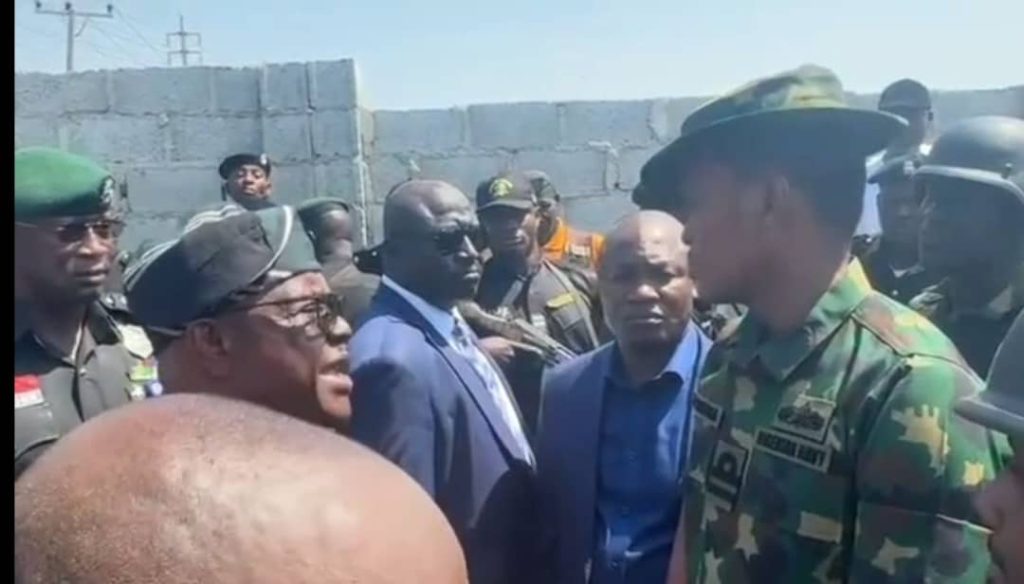The recent confrontation between the Federal Capital Territory (FCT) Minister Nyesom Wike and naval officers in Abuja has sparked significant attention and controversy. The heated exchange occurred during Wike’s inspection of disputed land, where he accused the military personnel of obstructing lawful government activities by preventing FCT officials from carrying out a demolition exercise on the site.
In a video shared by Channels Television, Wike can be seen demanding the naval officers produce documentation to justify their presence, asserting that no one is above the law, regardless of rank. The naval officer leading the troops claimed they were acting on orders and possessed the necessary documents, but Wike vehemently challenged their authority, emphasizing the need for government operations to adhere to legal standards.
The situation escalated further when a member of Wike’s entourage confronted the naval officer, accusing him of dishonesty regarding the land documents. This accusation reportedly incited anger among the armed officers, leading to heightened tensions. Wike’s team described the officers’ conduct as “unprofessional,” and the minister expressed concern that the standoff could have escalated into violence.
The naval officer maintained that the land had been legally acquired, but Wike’s response was sharp and confrontational, reflecting his commitment to enforcing order and legality in Abuja’s urban planning. He has been vocal about his intention to combat illegal land allocations and encroachments, asserting that government lands must be protected from influential individuals and developers.
While the incident highlights ongoing tensions between military and civilian authorities in Nigeria, it also underscores Wike’s contentious style of governance. Despite his promises to restore order, he has faced allegations of favoritism in land allocations, which he has denied.
As the situation develops, efforts to obtain official comments from both the Nigerian Navy and the FCT Administration are ongoing, leaving many to speculate about the implications of this confrontation for governance and urban planning in Abuja.

